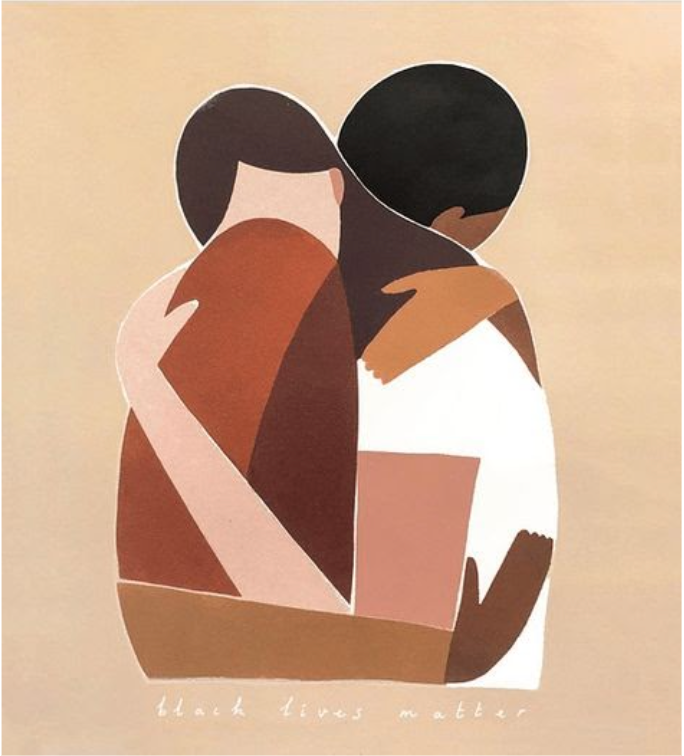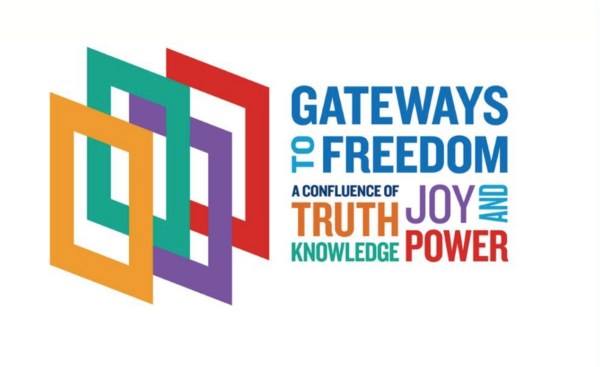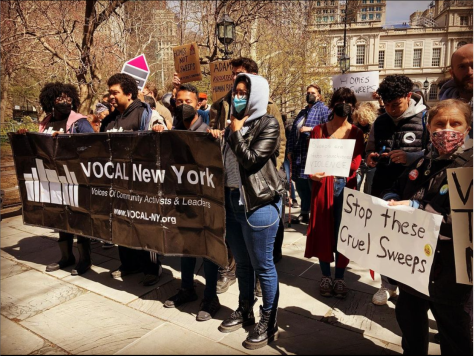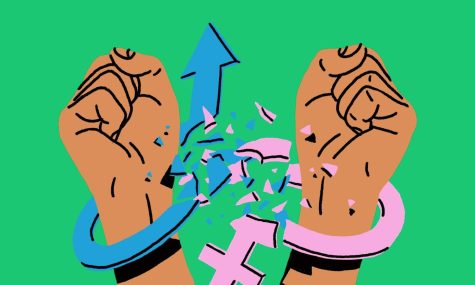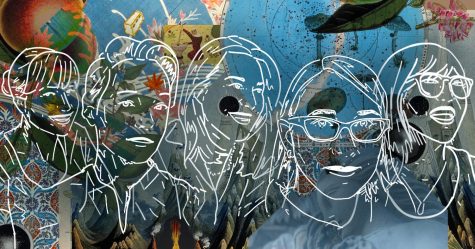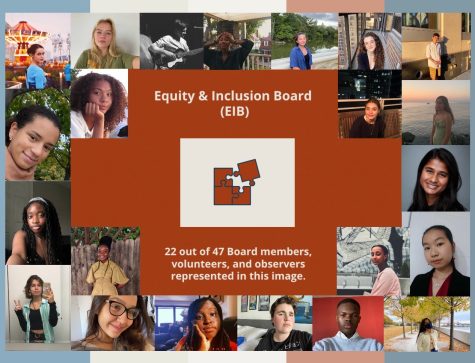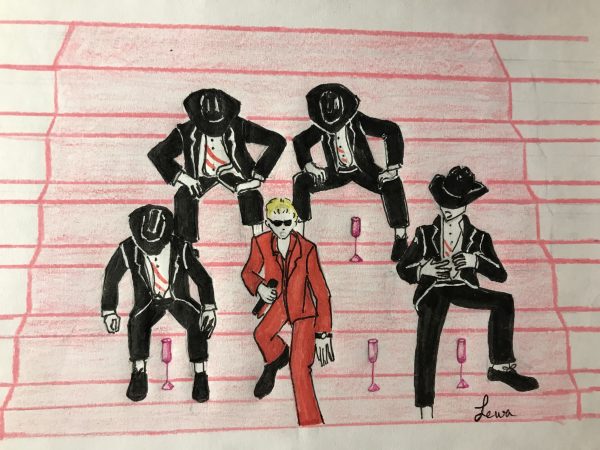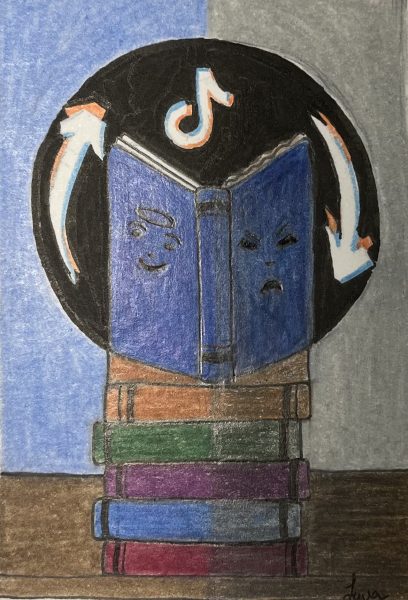The EIB Two Years On
There are certain responsibilities that go hand-in-hand with being an international school like UNIS. One of them, inevitably, is the responsibility to be a platform for equality and a safe haven for its diverse student body. The summer of 2020 brought a reckoning for the school in terms of its failure to meet these obligations. This reckoning was led by Black at UNIS, an alumni-led organization that began sharing stories of Black students who faced or were facing racism at the school on Instagram. A couple of months later, student members of Black at UNIS founded the Equity and Inclusion Board (EIB), intending to continue the organization’s work in school.
This article will provide a brief refresher on what the EIB is about and how it was founded, as well as a deeper insight into its achievements and progressions in the two years since its inception. I, Ma-Sadio, am an executive member of the board but will try my best to provide an objective overview of what the EIB has been up to.
So, how did the EIB come about?
Enter Rokhaya Ndiaye (T4), the EIB’s founder. Even before the 2020 international Black Lives Matter protests, Rokyaha had plans to start a club that provided a stage and refuge for diversity within UNIS.
She participated in a Middle School forum on the June 2020 protests, per the request of the Middle School principal Mrs. Kelly. Rokhaya’s main observation on this forum was that “it was quiet” and that this silence was “100% expected.” To her, these were reflections of what often happens in predominantly white institutions such as UNIS, which is diverse in terms of nationalities rather than ethnicity and race. To Rokhaya, at UNIS, conversations regarding racial equity were not even touched upon. While she acknowledged the existence of some response to the protests from the school, she found them dismissive and incomprehensive.
“I wrote a lengthy email,” Rokhaya recounts, “to basically all the administrators in the entire UNIS community.” Her email detailed their lack of accountability regarding their failure to provide a safe space during the time when it was needed most. It also critiqued the severe lack of representation in the curriculum for students. “From there, it just kind of kept on building up,” she continues. She began to set up meetings with UNIS administrators, seeking to come to a solution. She then founded the Equity and Inclusion Board to address these issues.
What is the EIB?
The EIB, according to Mr. Leyva, is a “student-led, student-focused” board that analyzes “deficiencies in the school.” These deficiencies include the lack of overall equality between students of different races and a, at times, non-diverse curriculum. “The ultimate intention of the EIB,” he said, “is to make students from all backgrounds and identities feel heard, safe, and protected.”
“The EIB is not a club,” Afomiya Kassie (T4), a Head of the EIB’s Social Media Committee, emphasizes. “It is a common misconception that exists despite the rather telling title of the board. The board works closely with the administration to spearhead different agendas, all tailored towards improving the school. The EIB met with the administration twice for big meetings last year, but it can schedule meetings anytime at the discretion of the executive committee.” The ability to call meetings with the administration is not an ability granted to clubs.
What does the EIB do?
A myriad of things. Most notably, the mentorship division runs programs in the Junior School, the Middle School, and the Queens campus (which is shutting down after this year). These mentorship programs consist of short lessons that aim to promote anti-racism and good values amongst the student body. In the Junior School last year, this consisted of lessons such as The Golden Rule and Consent. These lessons were taught by Tut House students. The EIB also hosts an annual conference that centers on a different topic each year. Its social media wing regularly posts infographics about important figures in different types of activism, and ways to get involved in combating issues, such as police brutality. In addition, the EIB has activist training programs that are run by non-members and members alike. These training programs cover a myriad of topics, from pronouns to media literacy.
What did the EIB accomplish in its first year?
In its first year, the EIB pushed the school to begin diversity and inclusion training, established an Instagram account, recruited 44 members, had eight Activist Training programs run by students, teachers, and non-EIB members, and launched all of its mentorship programs. The EIB also ran a voter registration drive for the 2020 presidential election. An extended list of the EIB’s accomplishments can be found here.
The results of the EIB? Well, it’s still ongoing.
Since its inception in 2020, the EIB has accomplished much. In 2022, the EIB held its annual conference in person for the first time. Its focus was on feminism and gender norms. On the first day, UNIS alum Bishakh Som spoke, focusing on gender norms. On day two, Gayatri Gopinath, Dee Mandiyan, and Jennelle Ramdeen spoke about feminist theory and intersectionality. Around 50 students participated on both days. This year, members also completed their long-awaited Black Lives Matter painting, which was featured on UNIS’ official Instagram account. The EIB had its first in-person meeting in October of 2021 and had an estimated 46 members.
The EIB’s progress has slowed a bit this year. As of 2022, it has two new members. As of April, their 2022 mentorship program has not launched yet, and the shutdown of the Queens campus has affected that division as well. Additionally, their activist training program was relegated to EIB members only this year. However, this is not to say that the EIB has not completed staggering progress, as it organized more successful projects this year than in the last two.
What’s next?
The EIB will come under new leadership soon. Three members of the Executive Committee: Chairperson Rokhaya Ndiaye, Co-Community Outreach Person Jacqui Davis, and Head of Social Media Afomiya Kassie are T4s who will graduate at the end of the school year. T3s Ma-Sadio Faye (myself) and Mikayla Pyke-Sharpe are serving as the new Co-Chairpeople.
Their positions as Middle School Liaison and Co-Community Outreach Person are also up for application. The Co-Community Outreach positions are being filled by Etsub Kassie (T3) and Julia Arrieux (T3). The new Social Media Coordination Team is Lulwah Elhariry (T3), Nikhil Khemani (T3), and Aksaamai Ormonbekova (T3). Adji Diouf (T3) is filling the Middle School Liaison position.
***
In conclusion, the accomplishments of the Equity and Inclusion Board have effected change in the direction of diversity, equity, and inclusion at UNIS in the amount of time it was founded. However, it has slowed its progress in the past two years. The EIB has completed valuable work for the UNIS community, such as introducing an important, student-led curriculum, and educating students. Its future role at UNIS will be defined by this.
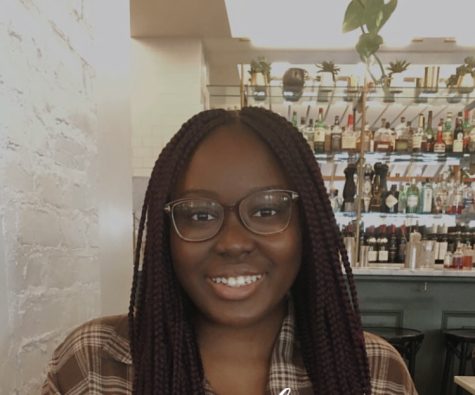
Hi! My name is Ma-Sadio and I'm in the class of 2023. I enjoy reading, writing, and baking. I also enjoy speaking about important issues that affect people...



